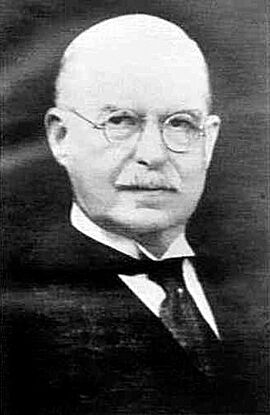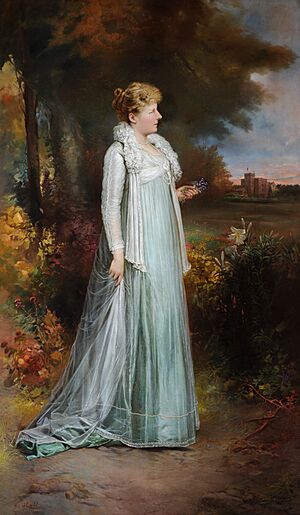Gerald Strickland, 1st Baron Strickland facts for kids
Quick facts for kids
The Lord Strickland
|
|
|---|---|

Strickland in the 1930s
|
|
| 4th Prime Minister of Malta | |
| In office 9 August 1927 – 21 June 1932 |
|
| Monarch | George V |
| Governor |
|
| Preceded by | Sir Ugo Mifsud |
| Succeeded by | Sir Ugo Mifsud |
| 23rd Governor of New South Wales | |
| In office 14 March 1913 – 27 October 1917 |
|
| Premier | |
| Preceded by | Lord Chelmsford |
| Succeeded by | Sir Walter Davidson |
| 15th Governor of Western Australia | |
| In office 31 May 1909 – 16 March 1913 |
|
| Premier | |
| Preceded by | Sir Frederick Bedford |
| Succeeded by | Sir Harry Barron |
| 9th Governor of Tasmania | |
| In office 28 October 1904 – 20 May 1909 |
|
| Premier | John Evans |
| Preceded by | Sir Arthur Havelock |
| Succeeded by | Sir Harry Barron |
| Member of Parliament for Lancaster |
|
| In office 20 October 1924 – 9 February 1928 |
|
| Preceded by | John O'Neill |
| Succeeded by | Robert Tomlinson |
| Majority | 4,158 (13.1%) |
| Personal details | |
| Born | 24 May 1861 Valletta, Malta |
| Died | August 22, 1940 (aged 79) Attard, Malta |
| Political party | Constitutional Party |
| Other political affiliations |
Conservative Party |
| Spouses |
Edeline Sackville
(m. 1891–1918)Margaret Hulton
(m. 1926–1940) |
| Children | 8 |
| Alma mater | Trinity College |
Gerald Paul Joseph Cajetan Carmel Antony Martin Strickland, 6th Count della Catena, 1st Baron Strickland (born 24 May 1861 – died 22 August 1940) was an important politician from Malta and Britain. He held many high-ranking jobs. He was the Prime Minister of Malta. He also served as a Governor in different parts of the British Empire, including the Leeward Islands, Tasmania, Western Australia, and New South Wales. Later in his life, he was a member of the Parliament of the United Kingdom, first in the House of Commons and then in the House of Lords.
Contents
Early Life and Education
Gerald Strickland was born in Valletta, Malta, on May 24, 1861. His father, Walter Strickland, was a naval officer from an old English family. His mother, Maria Aloysia Bonici-Mompalao, was the niece of Sir Nicholas Sceberras Bologna, who was the fifth Count della Catena in Malta. Gerald inherited this title in 1875.
He went to school at St Mary's College, Oscott, and then studied at Trinity College, Cambridge. After finishing his studies, he became a lawyer in 1887. He also became a Major in the Royal Malta Militia, which was a military group in Malta.
Start of Political Career
Strickland became involved in Maltese politics at a young age. In 1886, he was elected to the council of the government of Malta. In 1887, he worked with Dr. Fortunato Mizzi to suggest ideas for a new government in Malta. Their ideas helped create the new Maltese Constitution in December 1887.
The next year, in 1888, he became Assistant Secretary to Malta. In 1889, he was made Chief Secretary of Malta. He held this important job until 1902. After this, he was appointed as Governor of the Leeward Islands in the Caribbean.
Serving as Governor in Australia
In 1904, Sir Gerald Strickland became the Governor of Tasmania, serving until 1909. After that, he was the Governor of Western Australia from 1909 to 1913. During these years, he helped manage the relationship between the Australian states and the new Australian Federation.
In March 1913, he was appointed Governor of New South Wales. On May 30, 1913, he received a special honour, becoming a Knight Grand Cross of the Order of St Michael and St George (GCMG). This was a very high award for his public service.
Return to Maltese Politics
In 1917, Strickland returned to Malta. After Malta gained more self-government, he started the Anglo-Maltese Party in 1921. This party later joined with another group to form the Constitutional Party, with Strickland as its leader. From 1921 to 1927, he was the leader of the Opposition, meaning he led the main party not in power.
In 1924, he was also elected as a Member of Parliament in the United Kingdom House of Commons for the Conservatives. He stopped being a Member of Parliament in 1928 when he was given the title of Baron, which meant he became a member of the House of Lords.
Prime Minister of Malta
After the 1927 election, Strickland's party won the most seats. He became the fourth Prime Minister of Malta in August 1927 and served until 1932. During his time as Prime Minister, construction began on St. Luke's Hospital.
He also had a disagreement with the Senate, which was another part of the government. This led to changes that reduced the Senate's power. He also had a major disagreement with the Church authorities in Malta.
Conflict with Church Authorities
In 1930, the Archbishop of Malta and the Bishop of Gozo issued a letter. This letter was read in all churches. It stated that voting for Strickland's Constitutional Party or the Labour Party was a serious sin. It also said that reading Strickland's newspapers, like Daily Malta Chronicle and Ix-Xemx, was also a sin.
Strickland then started publishing new newspapers, Il-Progress and Il-Berqa. This conflict between the Church and Strickland's party was very serious. It even led to the British Governor and London temporarily stopping the Maltese Constitution.
Between 1932 and 1933, Strickland was again the leader of the Opposition. When a new Constitution was granted in 1939, he became the leader of the elected majority in the Council of Government.
Family Life
Gerald Strickland married Lady Edeline Sackville-West in 1891. They had six daughters and two sons, but both sons died when they were very young. Their daughter, Mabel Strickland, became a well-known newspaper owner and politician in Malta.
After Lady Edeline passed away in 1918, Strickland married Margaret Hulton in 1926. She was the daughter of a famous newspaper owner. Margaret Hulton was later given the title of Dame Commander of the Order of the British Empire in 1937.
Strickland received several honours for his work. He was made a Companion of the Order of St Michael and St George in 1889 for his help during a serious cholera outbreak. He was promoted to Knight Commander in 1897. In 1928, he was given the title of Baron Strickland, which made him a member of the British House of Lords.
Gerald Strickland passed away on August 22, 1940, at his home in Attard, Malta. He is buried in the family tomb at St. Paul's Cathedral, Mdina.
Honours
| Knight Grand Cross of the Order of St Michael and St George (GCMG) | 1913 | |
| Knight Commander of the Order of St Michael and St George (KCMG) | 1897 | |
| Companion of the Order of St Michael and St George (CMG) | 1889 | |
| King George V Coronation Medal | 1911 | |
| King George V Silver Jubilee Medal | 1935 |
 | Aurelia Browder |
 | Nannie Helen Burroughs |
 | Michelle Alexander |


